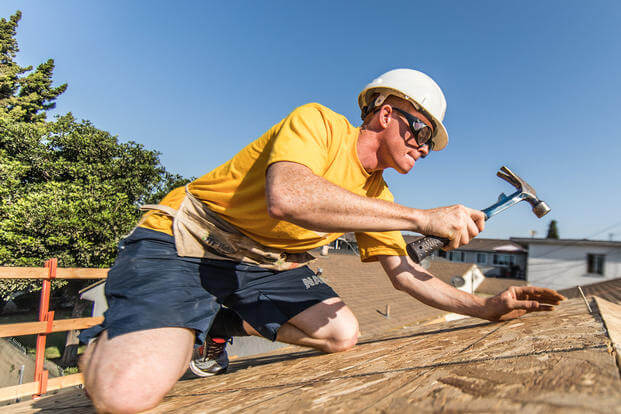Looking for a well-paying job in construction but don't have the skills to land one? Good news: Increased demand means that a number of organizations can help you get the training you need.
Related: Search for Construction jobs.
Get Trained and Certified
To attract and incentivize workers, many organizations are now sponsoring training programs.
The NCCER, or National Center for Construction Education and Research, is one such organization. The not-for-profit education foundation was created to help address the critical workforce shortage facing the construction industry and to develop industry-driven standardized craft training programs with portable credentials.
The foundation offers more than 500 training and assessment facilities. The sponsored courses mostly last 2-4 weeks. Sponsors include high schools, colleges, vocational schools, and contractors or owners on active construction sites. Each sponsor sets its own policy for paying fees, but in many cases, you can learn on the job while earning pay.
"Anyone can actually look for and identify [the] places closest to them," NCCER Vice President Steve Greene said. "All sponsors are listed and many with detailed locations. It's almost like MapQuest."
Courses include, among others:
- Safety
- Mathematics
- Recognition of standard tools
- Blueprint reading
- Communication skills
- Employability skills
Most sponsors require trainees to be drug free. Certain training aspects cannot be performed until you are at least 16, but there's no upper age limit. "I've seen programs with 60-year-old individuals seeking a new career," Greene said.
Related: Does your resume pass the 6-second test? Get a FREE assessment.
Earn Your Way
One employer who benefited from the training programs offered through NCCER was Dallas/Fort Worth International Airport. By the time the airport's $2.6 billion expansion program wrapped up in 2005, some 2,500 workers had attended local colleges for NCCER-accredited training in such specialty skills as surveying or electrical work.
In an agreement with participating contracting firms, the Dallas-Fort Worth International Airport put 15 cents for every man-hour worked into the program, said R. Clay Paslay, former Dallas/Fort Worth International Airport executive vice president.
Bridging Worlds
Similar safety and job-training programs, run by the South Carolina Department of Transportation (SCDOT), enabled low-income residents in Charleston to raise their standards of living. At the site of the new Cooper River Bridge, the SCDOT ran a two-pronged program.
The first was a two-week program, including CPR, interpersonal skills, reading and math, construction terminology and job interview skills. Once applicants completed that, they began a journeyman year of working in a specific trade. Program director Horrace Tobin cites a single mother who has gone through the program and got off federally assisted living. "She wants to be a crane operator," he said.
The SCDOT also has established a transportation education institute that will offer 20 scholarships to inner-city children for local technical schools. Another program will offer college scholarships.
Opportunities Are Widespread -- for Women, Too
When there's a big public works project, finding out what special programs may be available is just a matter of calling the owner agency. Most have a community outreach office. Big projects usually have websites with contact information as well.
And in addition to NCCER, the Associated General Contractors of America offers scholarships to students for high-level construction jobs, as well as management and training for trade workers.
Some programs target women for entry-level skilled trades. For example, at Nontraditional Employment for Women (NEW) in New York City, "we offer two training options: a six-week daytime program or an evening and weekend program," said Anne Rascon, NEW executive director. "It's completely free. We provide an introduction to the trades, physical fitness and a hands-on component in carpentry, electrical and painting."
NEW also offers access to real construction sites. "We have very strong relationships with union apprenticeship programs," Rascon said. "Women are placed in a range of trades where they begin working on building sites throughout the five boroughs."
Are there counterpart programs in other states? Yes. Rascon cites Chicago Women in Trades, Oregon Tradeswomen, Hard Hatted Women in Cleveland and Tradeswomen in San Francisco, to name a few.
Related: For the latest veteran jobs postings around the country, visit the Military.com Job Search section.
The Next Step: Find the Right Job
Whether you want to polish up your resume, find veteran job fairs in your area, or connect with employers looking to hire veterans, Military.com can help. Sign up for a free Military.com membership to have job postings, guides and advice, and more delivered directly to your inbox.











